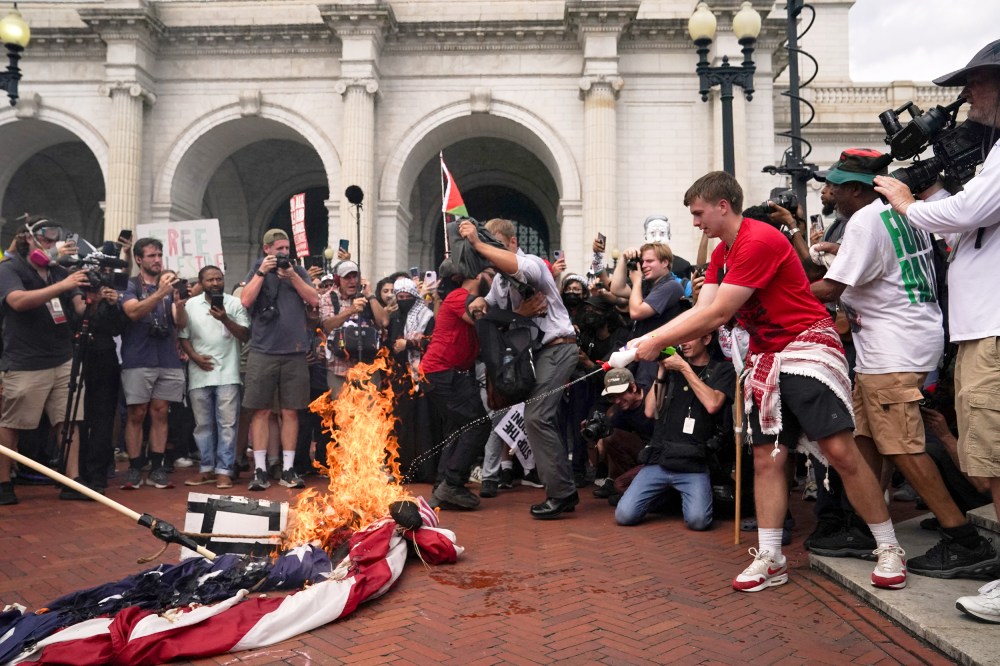Images of protesters burning American flags are always divisive.
But the scenes emerging from demonstrations in Washington during Israeli Prime Minister Benjamin Netanyahu’s speech to Congress were especially so, given some protesters’ open support of Hamas.
Equally predictable? The immediate calls to ban and punish flag burning that arose as criticism of the protests snowballed.
Yes, you have the right to burn the American flag, but with some caveats.
It is a question Americans continue to spar over, even though it is one the Supreme Court settled 35 years ago in Texas v. Johnson. In that case, the court affirmed that the government cannot punish offensive expression in service of protecting national symbols. Put simply, our anthem and our flag are not weighted more heavily than our rights.
But supporters of a ban got a boost from former President Donald Trump this week when, appearing on “Fox & Friends,” he advocated for congressional action and “a one-year jail sentence if you do anything to desecrate the American flag.”
“Now, people will say, ‘Oh, it’s unconstitutional,’” the Republican presidential nominee added. “Those are stupid people that say that.”
Vice President Kamala Harris — the likely Democratic nominee — released a statement, as well. Unlike Trump, she did not call for a ban on flag burning, instead stating that the flag should “never be desecrated.”

Let’s get a few things out of the way: Yes, you have the right to burn the American flag, but with some caveats.
You do not, of course, have the right to steal and vandalize a flag you do not own, and you may not be able to burn a flag in protest in any and all public spaces because of safety regulations. Police reportedly made arrests connected to protesters’ alleged theft and destruction of flags in the park outside Union Station, as well as other acts of vandalism.
The conversations spurred by Trump and other advocates of a flag burning ban, however, extend far beyond criminal acts and well into purely expressive conduct. At its core, what’s at stake here is the right of people across the political spectrum to express deeply unpopular political views and be free of retaliation from the government they are criticizing.
Flag burning may be a deeply unpopular form of political expression, but it is nevertheless protected.
Flag burners are rarely sympathetic free speech test cases for many Americans, but distaste for the incendiary way they express their opposition to the government should not lull us into accepting censorship rules that would be more at home in China or Russia than in a free country.












